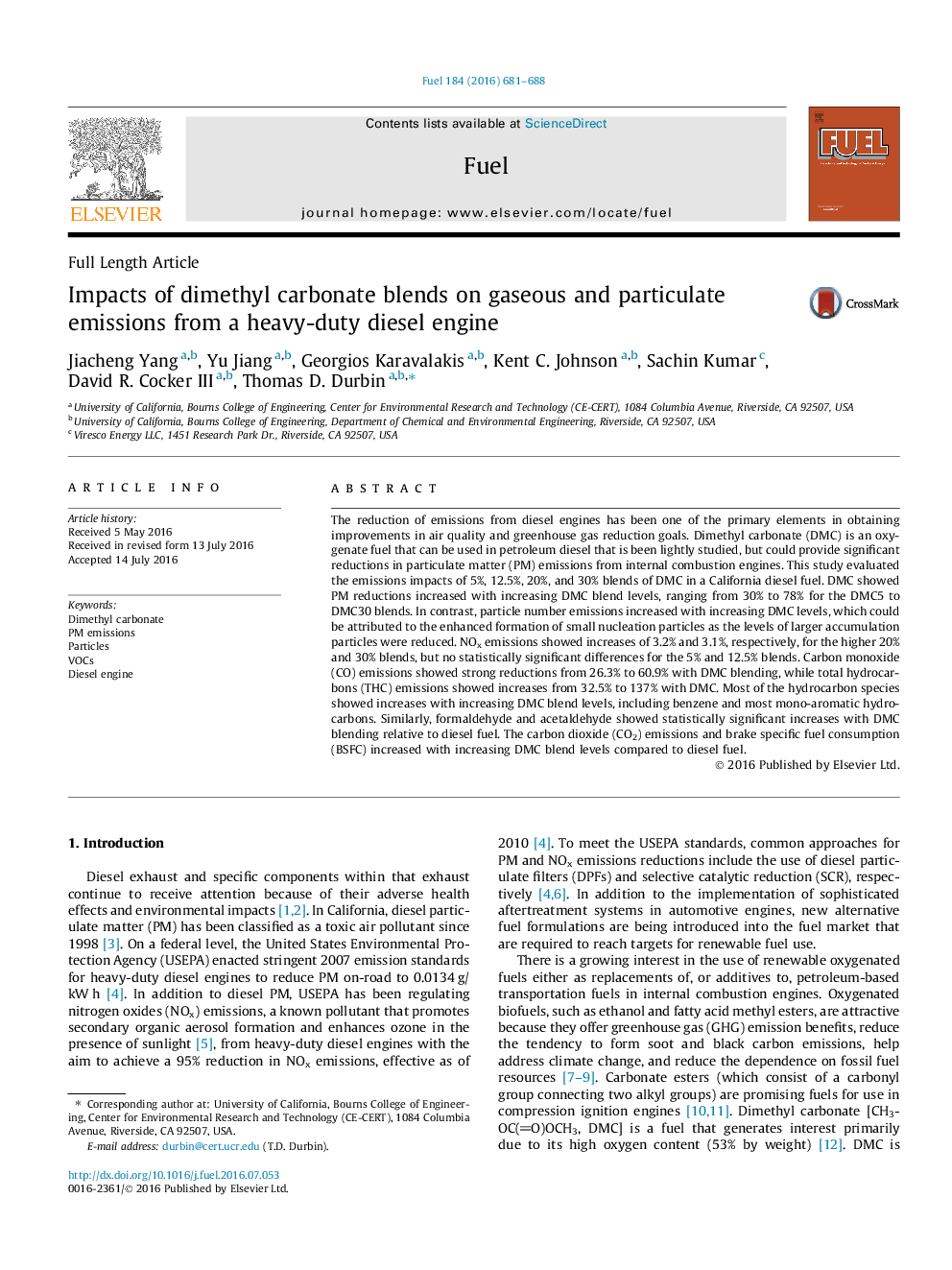| کد مقاله | کد نشریه | سال انتشار | مقاله انگلیسی | نسخه تمام متن |
|---|---|---|---|---|
| 6633121 | 461089 | 2016 | 8 صفحه PDF | دانلود رایگان |
عنوان انگلیسی مقاله ISI
Impacts of dimethyl carbonate blends on gaseous and particulate emissions from a heavy-duty diesel engine
ترجمه فارسی عنوان
تاثیرات دی متیل کربنات در تولید گازهای گلخانه ای و ذرات معلق از یک موتور دیزلی سنگین، ترکیب می شود
دانلود مقاله + سفارش ترجمه
دانلود مقاله ISI انگلیسی
رایگان برای ایرانیان
کلمات کلیدی
موضوعات مرتبط
مهندسی و علوم پایه
مهندسی شیمی
مهندسی شیمی (عمومی)
چکیده انگلیسی
The reduction of emissions from diesel engines has been one of the primary elements in obtaining improvements in air quality and greenhouse gas reduction goals. Dimethyl carbonate (DMC) is an oxygenate fuel that can be used in petroleum diesel that is been lightly studied, but could provide significant reductions in particulate matter (PM) emissions from internal combustion engines. This study evaluated the emissions impacts of 5%, 12.5%, 20%, and 30% blends of DMC in a California diesel fuel. DMC showed PM reductions increased with increasing DMC blend levels, ranging from 30% to 78% for the DMC5 to DMC30 blends. In contrast, particle number emissions increased with increasing DMC levels, which could be attributed to the enhanced formation of small nucleation particles as the levels of larger accumulation particles were reduced. NOx emissions showed increases of 3.2% and 3.1%, respectively, for the higher 20% and 30% blends, but no statistically significant differences for the 5% and 12.5% blends. Carbon monoxide (CO) emissions showed strong reductions from 26.3% to 60.9% with DMC blending, while total hydrocarbons (THC) emissions showed increases from 32.5% to 137% with DMC. Most of the hydrocarbon species showed increases with increasing DMC blend levels, including benzene and most mono-aromatic hydrocarbons. Similarly, formaldehyde and acetaldehyde showed statistically significant increases with DMC blending relative to diesel fuel. The carbon dioxide (CO2) emissions and brake specific fuel consumption (BSFC) increased with increasing DMC blend levels compared to diesel fuel.
ناشر
Database: Elsevier - ScienceDirect (ساینس دایرکت)
Journal: Fuel - Volume 184, 15 November 2016, Pages 681-688
Journal: Fuel - Volume 184, 15 November 2016, Pages 681-688
نویسندگان
Jiacheng Yang, Yu Jiang, Georgios Karavalakis, Kent C. Johnson, Sachin Kumar, David R. III, Thomas D. Durbin,
